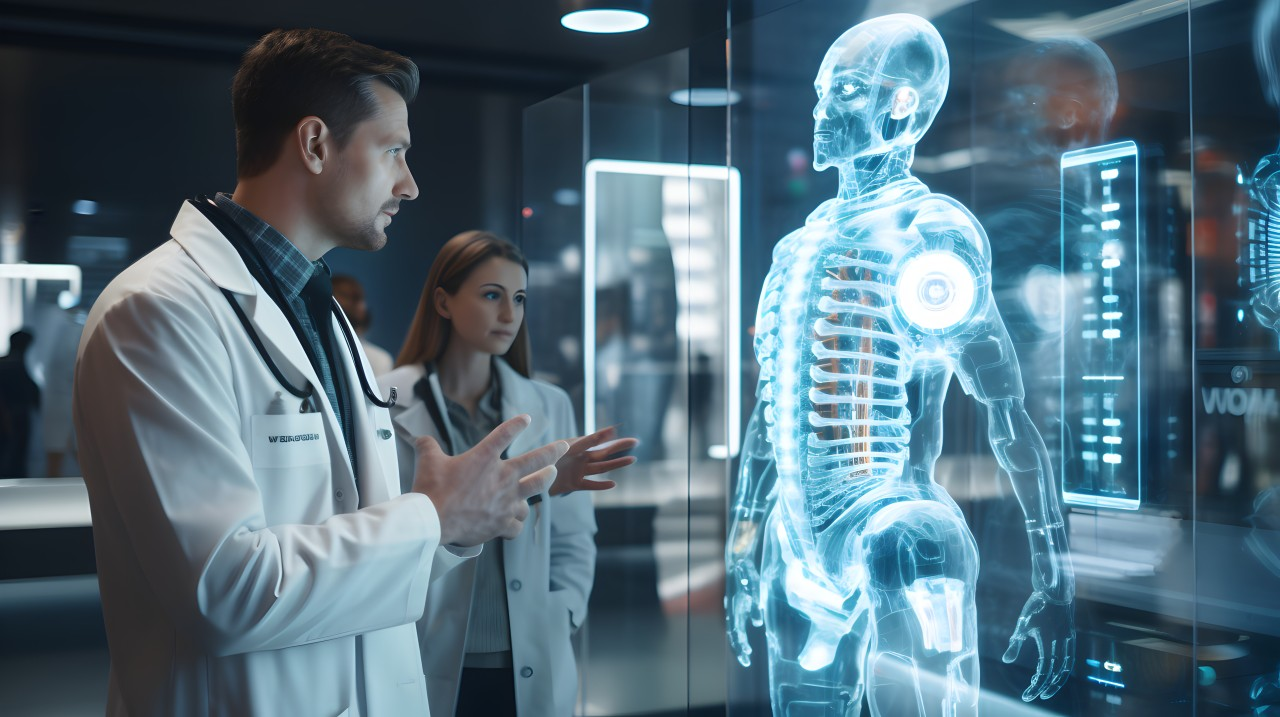Revolutionizing Patient Care: The Role of Artificial Intelligence in Diagnostics.The field of healthcare is undergoing a dramatic transformation as Artificial Intelligence (AI) steps into the forefront of diagnostics, offering unprecedented opportunities for improving patient outcomes. With its ability to analyze vast amounts of data quickly and accurately, AI is revolutionizing the way doctors diagnose diseases, predict patient conditions, and even personalize treatment plans.
AI-Powered Diagnostics: A Game Changer in Early Detection
One of the most significant benefits of AI in healthcare is its potential to enhance early detection of diseases. Traditional diagnostic methods often rely on the expertise of physicians to interpret test results, a process that can be time-consuming and prone to human error. AI, on the other hand, can sift through medical data—such as images, lab results, and patient histories—in a fraction of the time, delivering results that are not only faster but often more accurate.
In the realm of radiology, AI algorithms are already outperforming human doctors in certain cases. For example, AI systems trained to analyze X-rays, MRIs, and CT scans can identify signs of conditions like cancer, fractures, and neurological disorders with remarkable precision. Studies have shown that AI can detect lung cancer in radiology images earlier than some human radiologists, offering a window of opportunity for life-saving treatments.
Enhancing Predictive Analytics for Better Outcomes
AI is also making strides in predictive analytics, where algorithms analyze patterns in patient data to predict future health outcomes. By examining trends in a patient’s medical history, lifestyle factors, and genetic predispositions, AI can forecast the likelihood of chronic conditions such as diabetes, heart disease, and strokes. This predictive power allows healthcare providers to intervene earlier, personalize treatment strategies, and even recommend lifestyle changes to prevent the onset of diseases.
For instance, AI can assist in identifying patients at high risk for heart disease by analyzing factors like blood pressure, cholesterol levels, and family history. By providing this insight, doctors can offer more targeted prevention methods, such as medications, dietary changes, or lifestyle recommendations, all aimed at reducing the risk of life-threatening events.
Personalizing Treatment Plans with AI
Beyond diagnostics and prediction, AI is playing a key role in personalizing patient care. Machine learning algorithms are being used to analyze vast quantities of medical literature, clinical trial data, and patient records to recommend the most effective treatments tailored to an individual’s unique condition. AI can suggest specific drug therapies based on the patient’s genetic makeup, ensuring that the treatment is both effective and minimizes adverse side effects.
In oncology, for instance, AI is being used to recommend personalized cancer treatments based on genetic testing and tumor profiling. This allows oncologists to craft customized treatment regimens that are more likely to result in positive outcomes for the patient, as opposed to the traditional one-size-fits-all approach.
The Challenges and Ethical Considerations
Despite the numerous benefits, the integration of AI into diagnostics and patient care does not come without challenges. There are concerns surrounding data privacy, the need for robust regulatory frameworks, and the potential for biases in AI models. For example, if AI systems are trained on data that is not diverse, they may perform poorly for certain populations, leading to disparities in healthcare.
Moreover, while AI has the potential to augment doctors’ abilities, it is not a replacement for the human element in healthcare. Doctors must work in tandem with AI tools, using their clinical expertise to interpret AI-driven insights. The goal is not to replace healthcare professionals, but to empower them with better information to improve patient care.
The Future of AI in Healthcare
Looking ahead, the future of AI in healthcare is incredibly promising. Researchers are continuously refining AI algorithms to improve their accuracy and efficiency. As AI systems are trained on more diverse datasets, they are likely to become more adept at diagnosing diseases in a wider range of patients, including those from underserved populations.
AI’s role in diagnostics is expected to expand, with the potential to transform not just how diseases are identified, but also how treatment decisions are made. As healthcare becomes increasingly personalized, AI will continue to be a crucial tool in delivering the right care to the right patient at the right time.
In the next decade, it’s anticipated that AI-driven diagnostic systems will be commonplace in hospitals and clinics around the world, making healthcare more accessible, efficient, and accurate than ever before.
Conclusion
Artificial Intelligence is undoubtedly revolutionizing the field of patient care, particularly in diagnostics. By offering faster, more accurate diagnoses, enhancing predictive analytics, and personalizing treatments, AI is changing the way healthcare is delivered. As the technology continues to evolve, it promises to further transform patient care, improving outcomes and saving lives. While challenges remain, the integration of AI into healthcare represents a step forward in the ongoing pursuit of better, more efficient medical care for all.











